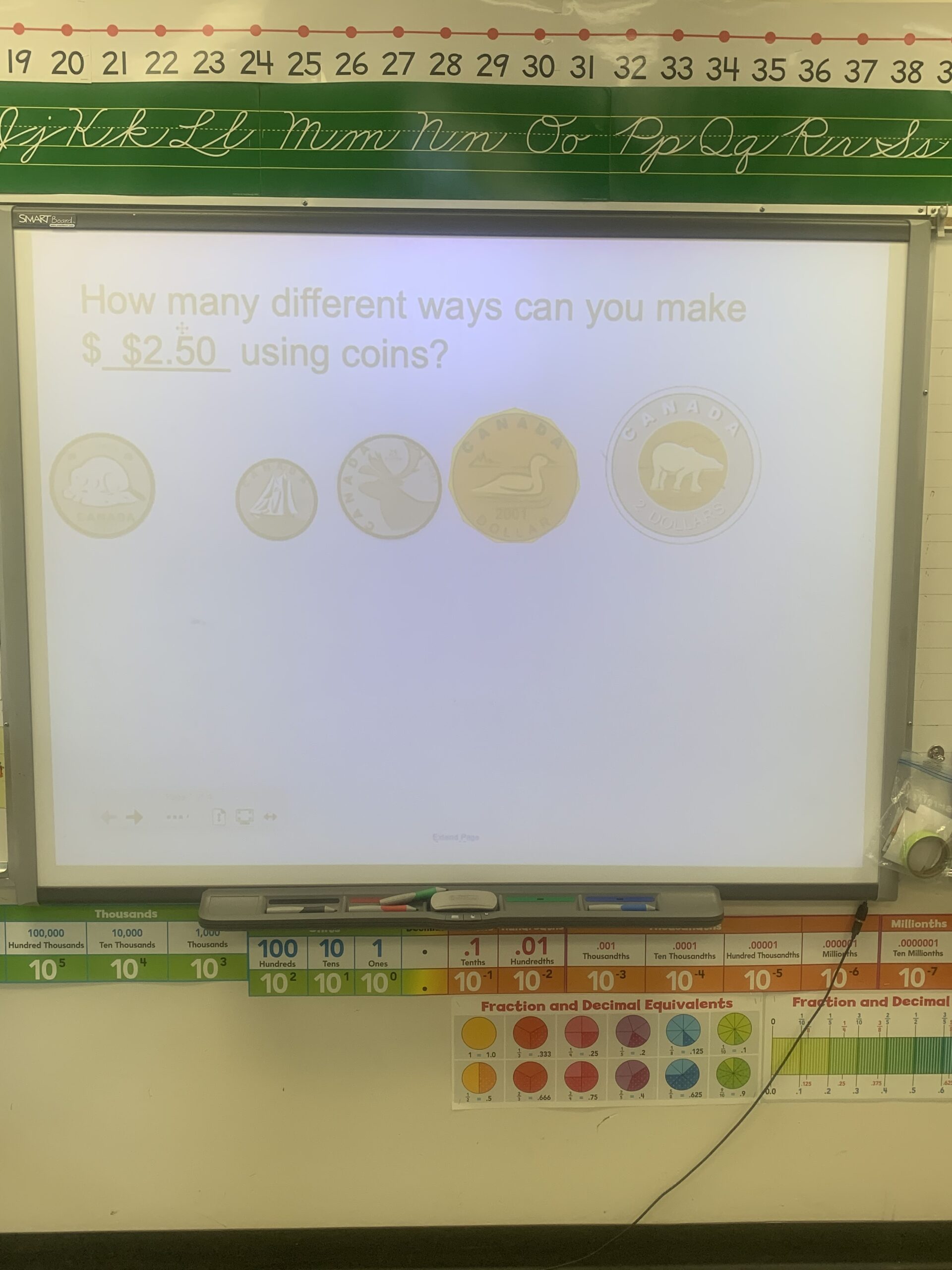I found this assignment challenging, as my thinking about curriculum and planning has always been fluid and further evolved while reading in this module. Representing the ideas visually was tricky, as a learner with ADHD I often describe my thinking as in webs rather than in lines or patterns, I jump from one connection to another through an irregularly woven web of connections. I have typically leaned towards an Understanding by Design approach, and my readings have solidified that with modifications on my current process this is something that could continue to work for me. I work within several constraints in my day-to-day practice. My school expects a high degree of collaboration and consistency among classes in a grade group, we even have a weekly collaboration block to co-plan. As a grade group we took time in June to come up with words to describe what we want learning to be, so for me not only do I need to be explicitly planning for the areas I identified as weaknesses in the last module I also need to make sure I am working on my teams four words. Our words we have chosen are connection, wonder, thinking and play. Luckily, I have been able to find connections between my areas to focus on identified in module 1 as well as the readings in this module. My personal growth areas are giving students a greater voice and choice in their learning and wanting to intentionally work on Sternberg’s “New 3 Rs.” I have seen the relationship between our focus words and the ideas presented by Sternberg. My framework has been shaped by both the readings and my constraints at school. Creating a framework that encompasses both has been tricky and a highly reflective process. The readings pulled me in multiple directions before I sat with my thoughts long enough to create something cohesive. I broke my framework into four sections words to describe learning, elements of curriculum planning, steps for planning and considerations.
Starting with my words to describe learning I was able to bring in ideas from many of the readings. Starting with connection this first brought out Noddings’s work on communities of care and teaching caring as part of the curriculum. In reading the Drake and Reid article one of the tips was to start with literacy as the base and weaving other subject areas into the learning and having literacy be the cross curricular skill so that students read about, discuss and write about topics from social studies or science. My goal for the upcoming school year is to be intentional about my integration of subject areas into cohesive themes, perhaps choosing one subject to merge with Language Arts each term to weave with literacy (Drake & Reid, 2010). Our next word is wonder which is the starting place of inquiry and learning. Looking at galileo.org, I really like their definition of inquiry , “inquiry the dynamic process of being open to wonder in puzzlement and coming to know and understand the world,” (Galileo Educational Network, n.d.) this strongly links to the idea of wonder as a base for learning. The third word we came up with was thinking which connected to the concept of reasoning in the Sternberg article. Thinking also came up in several ways through the Egan and Madej article, Egan and Madej state “{Learning in Depth} builds a deep understanding of the nature of knowledge, belief, and opinion. Once students have the experience of deep knowledge, they will be less prone to present opinions that are not secured by sound knowledge and less gullible when they come in contact with beliefs and opinions, however assertively these are stated or promoted.” (Egan & Madej, 2009) This also speaks to thinking and reasoning, that students who have had time to engage with thinking tools and topics deeply develop skills for identifying factual information and for creating their own informed opinions. Our final word is play, I found a lot about play in Forest and Nature School in Canada. What really struck me was how varied play can be in ways that I had not seen and the profound impact the various types of play can have on learning.
My next section looks at the elements of planning answering the questions who, what, where, when and how. Our students are the central piece of everything in our classrooms, my process always starts with my students and creating a supportive, caring environment where they know that they belong. I also look wat why we learn which ties into Orr’s 1991 article, about the purpose of education. I then move to what we are learning following the BC Curriculum and focusing on the competencies. My next step is looking at the how we learn, I try to use as many learning strategies as possible to engage all of my students. This was supported by the Tremblay et al, article active learning experiences such as jigsaws, projects, role play and group work are more motivating for students than a lecture format and showed increased student competency (Tremblay-Wragg, Raby, Menard, & Plante, 2019).
My final section is my steps for planning, and to me this is highly cyclical and never finished. I am constantly adjusting my plans as I learn more about my students, their interests and wonders. This aligns with the inquiry cycle from Learning in Depth as well as the ideas suggested by the Galileo network. I think that for curriculum to evolve, innovate and move forward we have to be in a continuous cycle of evaluating our work and beliefs about learning.
Bibliography
Andrachuk, H., Edgar, T., Eperjesi, P., Filler, C., Groves, J., Kaknevicus, J., . . . Young, J. (2014). Forest and Nature School in Canada A Head, Heart, Hands Approach to Outdoor Learning. Forest and Nature School In Canada.
Drake, D. S., & Reid, J. (2010). Integrated Curriculum Increasing relevance while maintaining accountability . WHAT WORKS? Research into Practice.
Egan, K., & Madej, K. (2009). Learning in Depth: Students As Experts. Canadian Education Association.
First Nations Education Steering Comittee. (2007). First People’s Principals of Learning. Retrieved from First Nations Education Steering Comittee: http://www.fnesc.ca/first-peoples-principles-of-learning/
Galileo Educational Network. (n.d.). What is Inquiry. Retrieved from GALILEO EDUCATIONAL NETWORK: https://galileo.org/articles/what-is-inquiry/
Gini-Newman, G., & Case, R. (2015). Creating Thinking Classrooms. Vancouver: Critical Thinking Cpnsortium.
Noddings, N. (1995). Teaching themes of care. Phi Delta Kappan.
Orr, D. (1991). What Is Education For? Six myths about the foundations of modern education, and six new principles to replace them. The Learning Revloution.
Play Wales. (2002). Playing and Hanging Out. Retrieved from Play Wales: https://www.playwales.org.uk/eng/playinghangingout
Play Wales. (2003).
Sternberg, R. J. (2008). Excellence for All. Educational Leadership, 14-19.
Tremblay-Wragg, É., Raby, C., Menard, L., & Plante, I. (2019). The use of diversified teaching strategies by four university teachers: what contribution to their students’ learning motivation? Teaching in Higher Education.
- Framework for planning good.pdf(532.77 KB)





